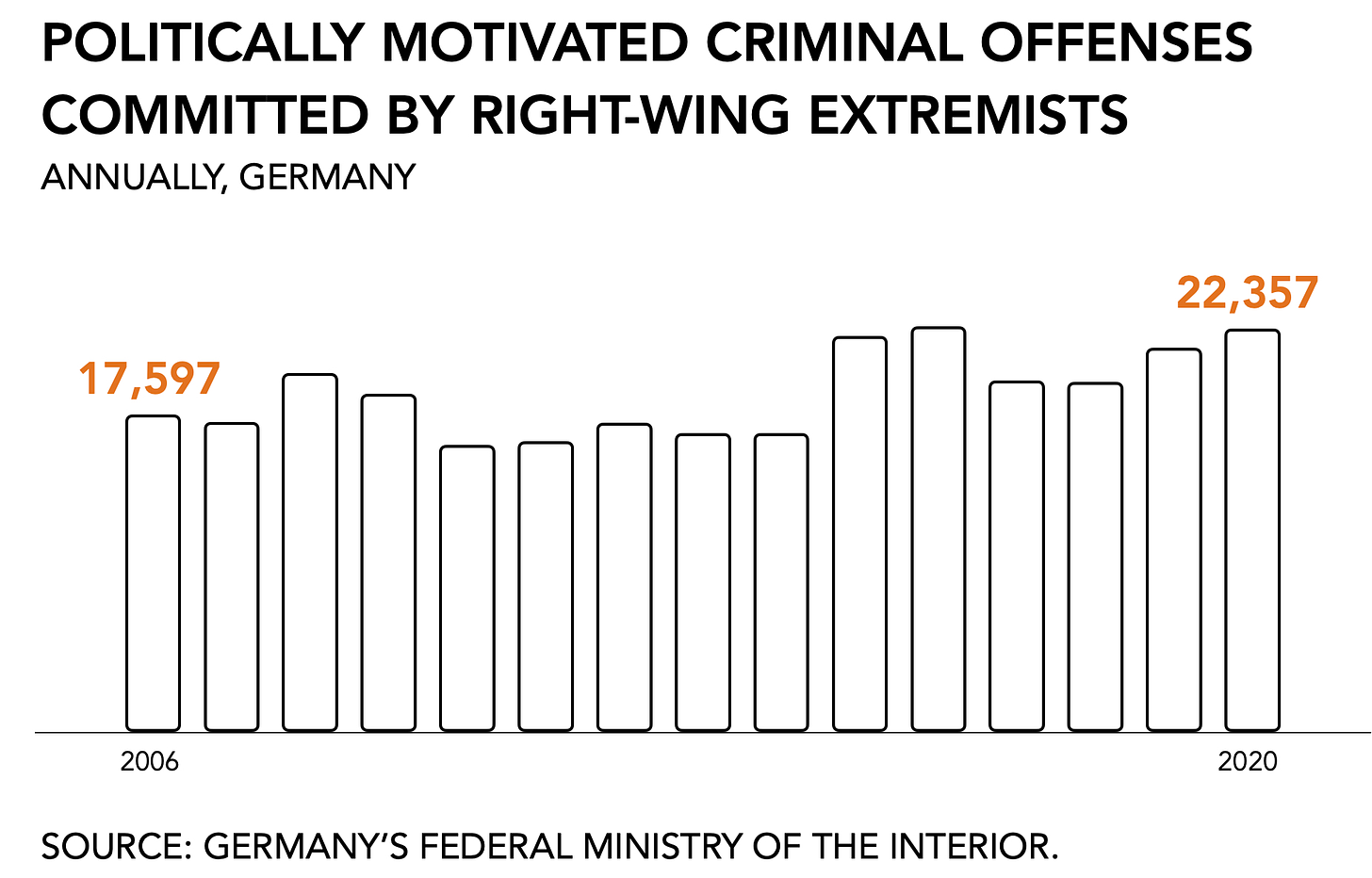After spending the past week in Germany, the Netherlands, and Belgium, I’ve eaten more potatoes than I’m willing to admit. Missing so often from these whirlwind traveling stints is a proper game system.
Yes, I own a Switch, which I adore, but so does my kid and I’d hate to take it from him while I’m away. I forfeited my option to buy a Steam Deck, because it’s too early to commit myself to all that while team Valve is straightening out the kinks. There’s my Razer Stealth Book, which is ever so pretty but the adapter weighs as much as my bicycle so I’m not carrying that anywhere. And now Logitech announced a $300 streaming deck that is 100% not going to work on hotel WiFi.
And so I find myself playing Super Mario Run while waiting for another complimentary plate of potato salad or fries. Hopefully one day, handheld gaming will be as ubiquitous.
On to this week’s update!
🎙Podguest appearances
This week I joined Dutch podcast De Technoloog, where Joe, Ben, and Daniël quizzed me on consolidation, Tencent, cloud gaming, and more. Don’t miss it!
Check out this week’s episode of UNBOXING, where Laine and I discuss video game price hikes, inflation, and farming.
BIG READ: Extremism in gaming
The Department of Homeland Security has issued a $700,000 grant to the Middlebury's Center on Terrorism, Extremism, and Counterterrorism to develop a set of best practices and training workshops for “the monitoring, detection, and prevention of extremist exploitation in gaming spaces.”
The grant is part of broader, international attention for the topic. In Germany, researchers from the Competence Center Against Extremism in Baden-Wurttemberg recently published a study on the radicalization of online gamers in Germany. In “From Gaming to Hating: Extreme-Right Ideological Indoctrination and Mobilization for Violence of Children on Online Gaming Platforms,” they establish what they refer to as the
“social-emotional bonding between potential recruits and extremist gamers created through shared gaming experiences that lead to high intensity extremist radicalization aimed at offline behavior changes.”
It is no secret that the political climate in both Europe and North America has shifted toward antagonistic populism that regularly manifests itself in public acts of violence. That’s too bad, really. And in Germany, there is a healthy amount of interest and funding available. There, both government and parents remain vigilant in monitoring online play behavior and gaming-related forms of social interaction to ensure the children there do not fall prey to grooming and radicalization. For good reason, it seems, as the number of politically motivated criminal offenses committed by right-wing extremists has increased by 27 percent over the past 14 years.
Fortunately, the study
“did not find evidence for strategic organizational far-right recruitment campaigns, but rather multi-directional social networking processes which were also initiated by the potential recruits.”
In human speak that means potential recruits already held and were actively looking for sources of information that rhymed with their far-right beliefs. Games, it suggests, merely provide an opportunity for such individuals to connect, but it is not a linear brainwashing machine.
That is consistent with earlier observations, including this excellent write-up by Cecilia D'Anastasio, that online environments provide fertile ground for fascism, albeit in a non-linear way. Beyond normalizing extremist beliefs in a playful setting, so, too, do game-related channels facilitate their dissemination.
I’m also sensitive to the fact that online environments present an opportunity for a wide array of interaction and exchange, including some that are hugely detrimental to the ideas and way of life many of us cherish. However, if we’re spending $700,000 for a study about the grooming and radicalization of gamers to become sympathetic to organizations with an agenda of violence, we should expect there to be a billion-dollar initiative into the same for Fox News viewers. Right? What I would like to know is how many of the convicted insurrections played Fortnite.
And that’s where the study shows its weakness. It positions itself in a longer-standing tradition that includes Special Forces, a first-person shooter game developed by Hezbollah, which puts the player in the role of a Palestinian freedom fighter against the Israeli military. Special Forces is such a mediocre game but because it repositions the roles of aggressor 70and victim, it has received an incredible amount of coverage. As a marketing tool, however, it has been spectacularly effective because existing power elites cannot stop talking about it. By holding up a mirror image of big-time shooter franchises, Six Days in Fallujah comes to mind, it reveals existing biases in the narrative and “proper” order of things in games that no one cares to investigate for the radicalization of gamers.
As development tools continue to become more readily available and accessible, we can expect there to appear more games that don’t sit well with the powers that be. Unity, for example, just announced an expansion of its game development engine that makes it easier for developers to integrate multiplayer components and online chat functionality. In the same way that YouTube and Facebook spend an increasing amount of effort to monitor and manage appropriate content and misinformation, we should expect the same to emerge in gaming. Especially, as the social lives of especially young audiences continue to move to online environments and digital worlds, online play spaces will face increased scrutiny.
Chances are, however, that this will occur in much the same way that arcades shifted from a place where you can drop off your kid while you shop in the 1980s to becoming a hotbed of childhood corruption. With games like Roblox and Fortnite considered to be blueprints for the next version of the internet, we can expect parents and politicians to take aim at what they will undoubtedly see as digital hives of scum and villainy.
NEWS
Take-Two unfazed by leak. Is it though?
In what Bloomberg writer Jason Schreier described as the biggest leak in the industry’s history, a hacker managed to gain access to files owned by game development’s studio Rockstar—a Take-Two subsidiary and maker of the Grand Theft Auto franchise—and circulated approximately 90 videos of early gameplay footage online.
The immediate impact of this leak on Take-Two is threefold. First, it demoralizes its creative team now that the genie is partially out of the bottle. Any developer, filmmaker, musician, or writer will understand that having your work circulated publicly before it is finished means losing at least some of the initiative and excitement, as people comment on things while you’re trying to do your job.
Second, it jeopardizes Take-Two financially as speculators and investors will try to take what they’ve seen as an indicator of what’s to come. Considering how important the GTA franchise is for Take-Two, it will be much harder for the publisher to control its narrative.
And, thirdly, it forces Take-Two to increase its internal security measures to keep things secret. That increases costs and development time, and may negatively impact its financial return. Take-Two released a new Form 8-K SEC filing, stating that it had
“recently experienced a network intrusion in which an unauthorized third party illegally accessed and downloaded confidential information from its systems, including early development footage for the next Grand Theft Auto. Current Rockstar Games services are unaffected.”
Nevertheless, Take-Two finds itself on the back foot, which will distract the organization. There will be more restrictions, reduced access, and other measures to retain its ability to spin up the marketing machine that drives much of its success. All of which may ultimately slow things down further.
Historically speaking, however, Rockstar fiercely protects its intellectual property, because it believes that only releasing content of the highest quality will result in both creative acclaim and financial success. Given its track record, that approach has proven to be correct and the publisher has previously delayed titles repeatedly even as investors started to become impatient.
The stock sell-off that followed the leak is a knee-jerk reaction as some investors seemingly take the leaked footage as a preview and make inferences about what the final version may look like. There is no way of truly knowing if the footage is recent, from two years ago or from last week. It is information obtained through illegal access and cannot be trusted to be complete or properly organized as would a formal announcement. Anyone investing in Take-Two adjusting their position based on this involuntary release of information shouldn’t be investing.
The major takeaway for Wall Street is that Take-Two won’t be ready to release GTA6 in 2023. Given its history of delays, that shouldn’t be a surprise. But now Take-Two faces even more intense scrutiny, which is the last thing you want when you’re trying to keep a secret. According to Wall Street, the timing of Dan Houser’s sabbatical, the active headcount at Rockstar, and details from the leaked footage make it unlikely GTA6 is anywhere near completion. Maybe. But certainly, Take-Two is now also dealing with a lot of misinformation.
The hacker is now under FBI investigation.
Can multiplayer cross-play boost Unity?
Unity, the maker of one of the most popular game engines, announced this week the beta-launch of its Unity Gaming Services, which aim to make it easier for developers to integrate online multiplayer components and feature cross-platform play.
Since its acquisition of Vivox in 2019, Unity has been playing catch up with its multiplayer capabilities, an area where it historically has been lacking. Providing an answer to developers looking to scale up their multiplayer and, more importantly, crossplay components is a need-to-have effort. Unity brings a wealth of expertise to developers, for sure, but that also means taking market share from rival Epic Games which continues to dominate with Fortnite.
The jury is still out on whether players will en masse gravitate to any Unity-based battle royale offering, but certainly lowering the technical entry barriers for this category may bring additional innovation that could tilt the scales in its favor. Ultimately, any strategy pursuing positive network effects needs a breakout hit to draw in both creatives and consumers.
PLAY/PASS
Pass. YouTuber Dan Allen Gaming admitted to regularly leaking embargoed information on new releases to drive traffic. He’s very sorry for getting caught.
Play. The music game category has been largely asleep. But now it’s awake once again thanks to Trombone Champ.







> arcades shifted from a place where you can drop off your kid while you shop in the 1980s to becoming a hotbed of childhood corruption
I’ve always been curious about the psychological/sociological mechanisms behind this shift. I remember going to arcades as a kid, and find the idea of them as seedy dens of vice and villainy to be not just quaint, but straight-up laughable. Although I suppose it’s easier to demonize and deflect instead of actually (gasp) *putting in effort* towards learning about and understanding.